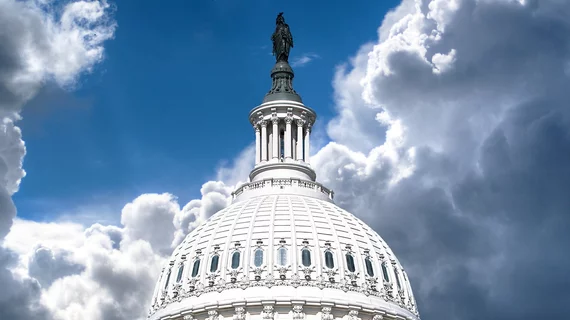Congress members renew call to address fee schedule update that will stifle radiologist pay
Bipartisan members of Congress are renewing calls to address a change in the Medicare fee schedule that will impact radiologist pay.
For the first time in nearly 20 years, the feds are boosting payments to benefit primary care and others who use clinical labor. But because of budget-neutral requirements, this necessitates cuts elsewhere to those who do not—with providers such as interventional radiologists and radiation oncologists bearing the brunt.
Reps. Bobby Rush, D-Ill., and Gus Bilirakis, R-Fla., are spearheading a group of 61 lawmakers, urging House and Senate leaders to address these changes. They believe such pay cuts will prove detrimental to specialists who treat clinical concerns—such as venous ulcers and peripheral artery disease—that disproportionately affect Black and Latino patients.
“These ‘clinical labor’ cuts are the most significant negative impact of the 2022 Physician Fee Schedule by far and are expected to cut reimbursement by more than 20 percent for some specialties,” Rush, Bilirakis and colleagues wrote in a Feb. 8 letter to leaders from both parties in the House and Senate. “Frankly, these cuts threaten to undermine efforts to address health inequity, accelerate health system consolidation, and weaken our ability to deal with the pandemic.”
The letter writers first introduced their bill back in November, with the feds failing to include its changes in final year-end spending legislation. Instead, the administration will phase-in the clinical labor wage updates over the next four years. Rush et al. said they hope their proposal will be included in upcoming omnibus appropriations legislation.
Late last month, the American College of Radiology identified the clinical labor wage updates as one potential target for its advocacy efforts in early 2022.

